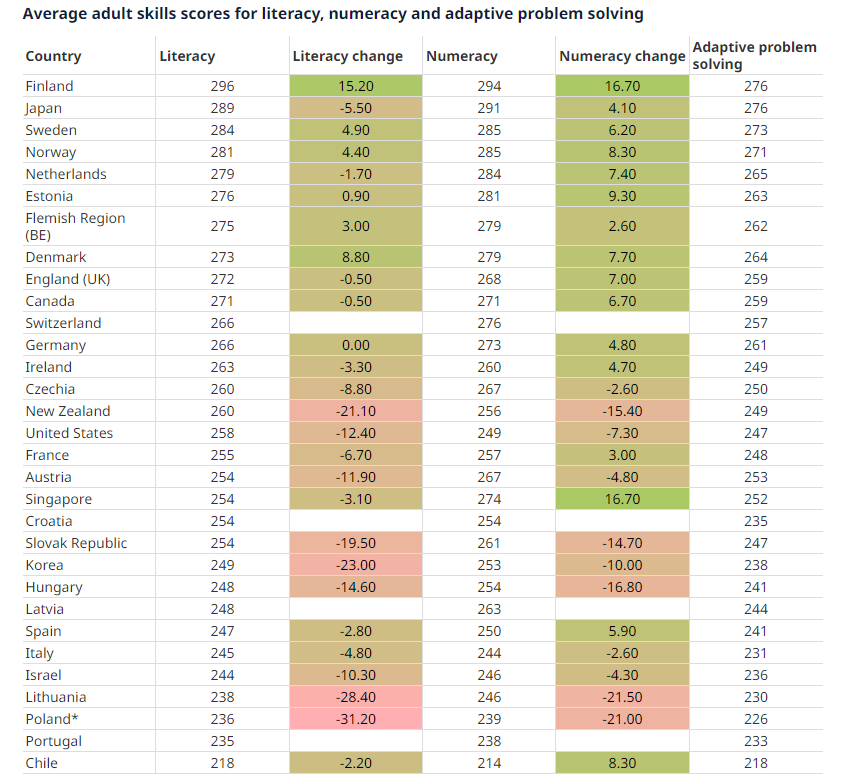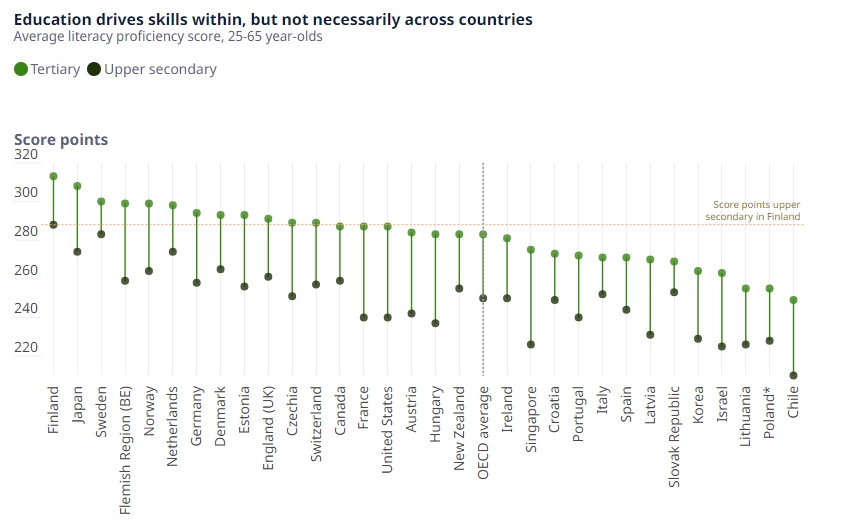Adults losing edge: Quarter now less skilled than children
 In many countries of the world, people have stopped developing (photo: freepik.com)
In many countries of the world, people have stopped developing (photo: freepik.com)
The latest study on adult skills highlights a global issue with literacy, numeracy, and adaptive problem-solving abilities. In many countries, 18% of adults lack even the most basic level of knowledge in any of these areas, while a quarter of adults have skills inferior to those of 10-year-old children.
Research by the Organization for Economic Co-operation and Development (OECD) reveals which countries are experiencing the sharpest decline in development and skills.
In 2023, thirty-one countries participated in the study of adult skills. The survey provides a comprehensive overview of adults' literacy, numeracy, and adaptive problem-solving skills — skills that are fundamental for personal, economic, and social development.
What the study revealed
The study revealed that adults with highly educated parents outperform those whose parents have low literacy levels by 50 points.
People with strong numeracy skills are 11% more likely to report very good or excellent health compared to those with low numeracy skills.
Over the last decade, the average literacy level has improved only in Finland and Denmark.
Eight countries improved their numeracy results: Finland, Japan, Sweden, Norway, the Netherlands, Estonia, Belgium, and Germany.
In most countries and economies where skill levels declined, literacy and numeracy levels dropped across different age groups.
Higher educational qualifications do not necessarily indicate higher skills. For example, Finnish secondary school graduates consistently outperform adults with higher education degrees in several countries, including Chile, Israel, and Lithuania.
About one-third of workers are mismatched to their jobs in terms of qualifications, skills, and fields of study. This mismatch results in significant economic and social losses, especially for overqualified individuals. For instance, adults working in jobs that do not require their level of education earn 12% less compared to peers in roles that match their qualifications.
Such workers rarely report satisfaction with their lives. In fact, if people are unable to use their qualifications, they often feel they are wasting their potential.

Screenshot
Where people thrive and where they fall behind
Top 10 countries with the highest literacy, numeracy, and skills levels:
- Finland
- Japan
- Sweden
- Norway
- Netherlands
- Estonia
- Belgium
- Germany
- England
- Canada
Countries showing the sharpest decline:
- Poland
- Lithuania
- Korea
- New Zealand
- Slovakia
- Hungary
- US
- Austria
- Israel
- Czech Republic
Countries with the lowest skill levels overall:
- Korea
- Hungary
- Latvia
- Spain
- Italy
- Israel
- Lithuania
- Poland
- Portugal
- Chile

Screenshot
Additional findings:
- Over the last decade, literacy levels among young people aged 16-24 have increased in Norway, Finland, and England.
- Literacy levels among men have declined more sharply than among women. Women now demonstrate higher literacy skills than men. However, men still outperform women in numeracy and adaptive problem-solving (by just 2 points).
- Despite the widespread expansion of education, the average skill level has not improved. Literacy among adults with higher education has increased only in Finland, while it has decreased in many other countries. The sharpest declines (by 20 points) were observed in Korea, Lithuania, and Slovakia.
- One in five people globally performs reading and math tasks at a primary school level.
- In half of the countries surveyed, the situation is critical: a quarter of adults possess skills inferior to those of 10-year-old children.

